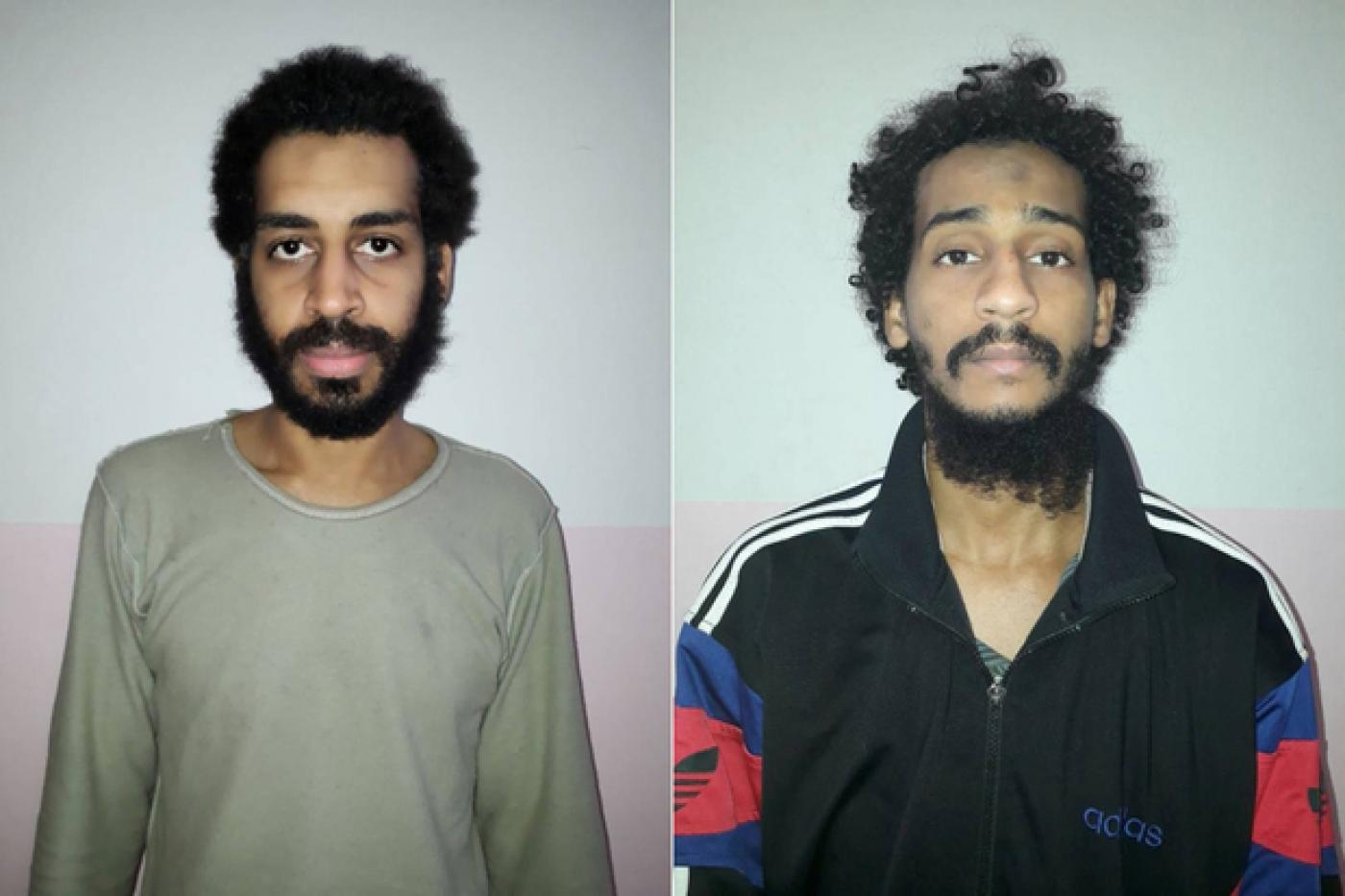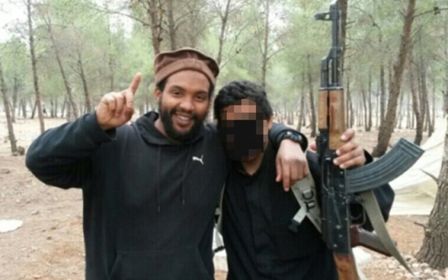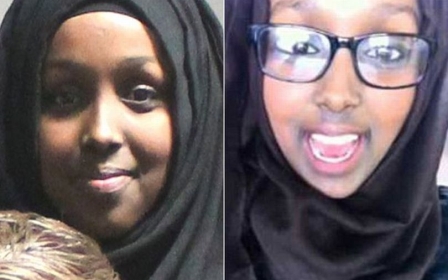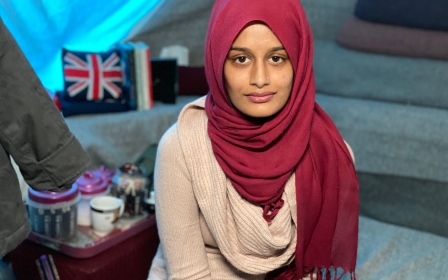UK lifts ban on evidence-sharing with US in Islamic State 'Beatles' case

The UK's Supreme Court lifted a ban on Wednesday that had prohibited the government from sharing evidence with the US in the case of two men accused of being members of an Islamic State (IS) group execution squad known as "the Beatles".
The move comes a week after Washington vowed not to pursue the death penalty against Alexanda Kotey and El Shafee Elsheikh, who are accused of killing and torturing Western journalists in Syria, including James Foley and Steven Sotloff, as well as American aid worker Peter Kassig.
In a letter to British Home Secretary Priti Patel last week, US Attorney General Bill Barr said Washington would not seek the death penalty against the two in exchange for the UK's cooperation.
At the time, Barr warned that Washington planned to hand Kotey and Elsheikh over to the Iraqi justice system if the UK's Home Office did not agree to the deal by 15 October. Based on past events, Iraqi authorities would likely execute the two without due process.
The Home Office had been bound by a March Supreme Court ruling against providing material to the US or other foreign countries in cases that could lead to a death penalty.
The ruling, based on the UK's data protection laws regarding the death penalty, was a result of legal action brought by Elsheikh’s mother, Maha El Gizouli.
Evidence-sharing was also blocked by the fact that Gizouli had an open court case regarding the matter.
On Wednesday, however, Gizouli's case officially came to a close, ending that side of the legal prohibition. That, coupled with the US promise to withdraw the death penalty, led the court to clear the way for British authorities to share case evidence.
"The order concludes the proceedings in the Supreme Court, which means that the stay or the stop on providing material to the US government is removed," a court spokeswoman told Reuters.
The decision on whether or not to share evidence with the US now lies with Patel.
'The Beatles' execution squad
Kotey and Elsheikh were captured by Kurdish forces in Syria in 2018, before being handed over to the US in October.
Last week, Barr said their continued detention was untenable, prompting Washington's ultimatum.
"Further delay is no longer possible if Kotey and Elsheikh are to be tried in the United States, and the further delay is an injustice to the families of the victims," Barr said in the letter to Patel.
While both Londoners, the UK government quietly took steps to strip the men of their British citizenship in late 2014, after the footage of the gruesome beheadings were posted on the internet.
The IS cell is believed to have been led by Mohammed Emwazi, the masked figure in a series of execution videos released by the group in 2014 and 2015. Emwazi, also known as "Jihadi John", was killed in a US drone strike in 2015.
A fourth alleged member of the cell, Aine Davis, was arrested in Turkey in 2015, where he was convicted and jailed on terrorism charges in 2017.
Middle East Eye delivers independent and unrivalled coverage and analysis of the Middle East, North Africa and beyond. To learn more about republishing this content and the associated fees, please fill out this form. More about MEE can be found here.




